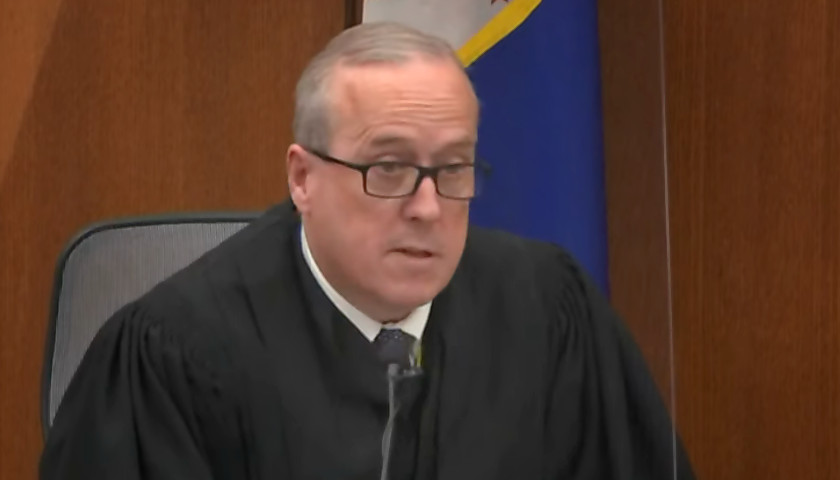Attorneys for the state and for former Minneapolis Police officer Derek Chauvin, accused of killing George Floyd during an arrest last may, made their closing arguments in Chauvin’s murder trial Monday.
The state characterized Floyd as a compassionate family man, and argued that Chauvin did not behave humanely towards Floyd during his arrest. Prosecutors argued that Chauvin was uncaring and malicious towards Floyd.
“All that was required was some compassion,” prosecutor Steve Schleicher said, delivering the state’s closing argument. “Humans need that.”
Schleicher then shifted his argument to the facts of the case. The state’s contention is that Chauvin killed Floyd by kneeling on his neck, until Floyd could no longer breathe.
“But more fundamental than than, and more practical at that time than [compassion], what George Floyd needed was some oxygen,” Schleicher said. “That’s what he needed. He needed to breathe.”
Schleicher insisted that Chauvin ignored Floyd’s plea for oxygen for nine minutes and 29 seconds, the length of the encounter between the pair, which the state emphasized in its opening arguments and throughout the trial.
“When he was unable to speak, the defendant continued [to kneel],” Schleicher said. “When he was unable to breathe, the defendant continued. Beyond the point that he had a pulse, the defendant continued this assault.”
Schleicher also berated the defense, saying that it failed to prove the assertion made in its opening statement that Chauvin followed training protocol during the arrest, and claimed that Chauvin broke those protocols purposefully, with the intent to kill Floyd.
Later in his argument, Schleicher walked jurors through the charges against Chauvin, second and third degree murder along with second degree manslaughter, and the elements of those crimes, attempting to show the jury how the state proved Chuavin’s guilt on each charge.
Chauvin’s attorney, Eric Nelson, argued that the state did not meet its burden of proof. The state must prove that Chauvin’s actions led to Floyd’s death, beyond a reasonable doubt.
He also argued that Chauvin used “reasonable force” in his arrest of Floyd, and that the state did not prove that Chauvin’s use of force was unlawful in the situation.
“The standard is not ‘what should the officer have done in these circumstances?'” Nelson said. “It’s not ‘what could the officer have done differently in these circumstances?'” The standard is ‘what were the facts that were known to this officer at the precise moment he used force, and considering all of the totality of circumstances and facts known to the officer, what would a reasonable police officer have done?'”
Nelson then walked the jury through the entirety of Floyd’s arrest, including the struggle Floyd had with other officers before Chauvin intervened, in an effort to prove that Chauvin acted reasonably based on the circumstances.
“In this case, the totality of the circumstances that were known to a reasonable police officer in the precise moment the force was used demonstrates that this was an authorized use of force, as unattractive as it may be,” Nelson said. “And this is reasonable doubt.”
Noting that intent is a required element to prove murder, Nelson also argued that Chauvin did not intentionally or purposefully use force in an unlawful manner.
Prosecutor Jerry Blackwell gave the state’s rebuttal.
He reminded the jury that they had heard from forty-five witnesses during the trial, but that the “forty-sixth witness” in the case is common sense. He argued that common sense should tell the jury that Chauvin acted unreasonably by simply not getting up off of Floyd’s neck and back when he became incapacitated.
Hennepin County District Judge Peter Cahill then instructed the jury about how to proceed during deliberations.
The jury’s outcome is expected later this week.
Watch the full closing arguments here.
– – –
Pete D’Abrosca is a contributor at The Minnesota Sun and The Star News Network. Follow Pete on Twitter. Email tips to [email protected].




